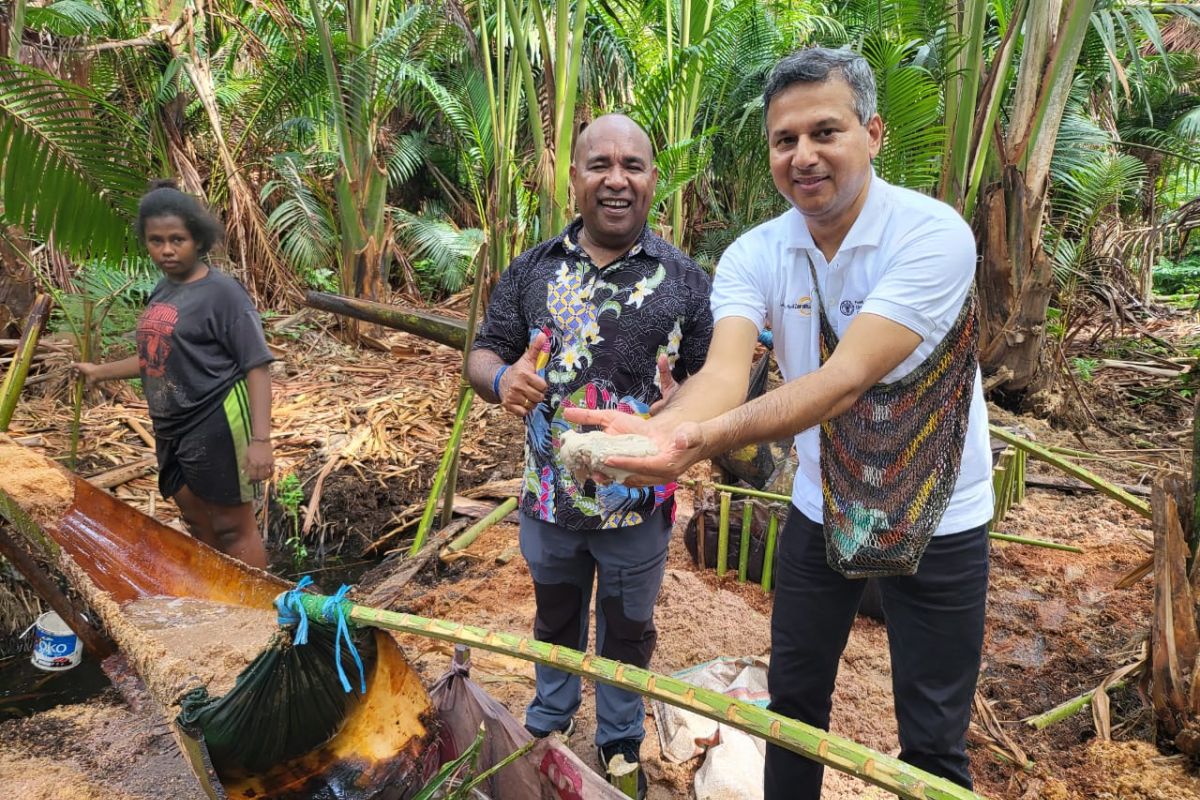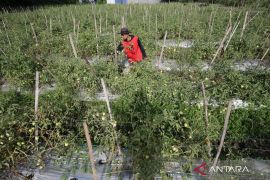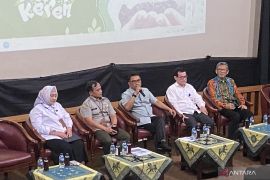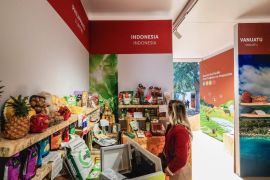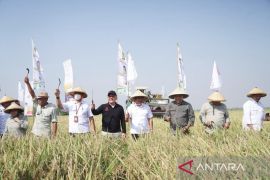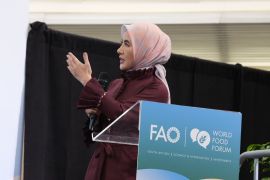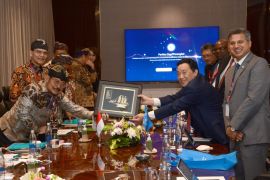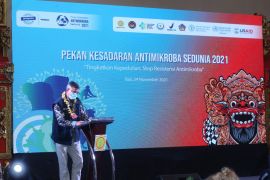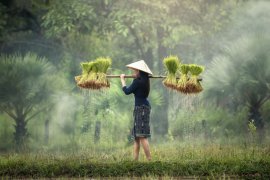The visit was organized jointly with officials from the Ministry of Agrarian Affairs and Spatial Planning (ATR/BPN) and the Ministry of Agriculture and facilitated by Analisis Papua Strategis (APS), according to FAO Indonesia's statement on Saturday.
One of the main objectives of the visit was to look at opportunities to promote and diversify local food production in Papua from various sources, including non-timber forest products.
"This is an opportunity to explore possible areas of collaboration to support the resilience of local farmers by building on their ongoing efforts and improving their livelihoods," Aryal remarked.
He noted that food systems in the world were affected by several problems, such as the impact of the COVID-19 pandemic, climate changes, and ongoing conflict in Ukraine that had chiefly affected food systems at the global level.
"We are facing the 5F crisis -- food, fuel, finance, feed, and fertilizer -- and this is the time to look for innovative approaches to transform the agri-food systems. Indonesia has alternative crops that can be further explored," he explained.
"Sago has the potential as an alternative flour as gluten-free products, and this could also be in the interest of the local population. Sago is a part of the life of the local people here," he explained.
In Papua, Aryal paid a courtesy call on the heads of Jayapura and Yahukimo regencies, conducted field visits, and held a technical discussion with Papuan intellectuals at Cendrawasih University and the Papua regional development agency.
The discussion mainly focused on boosting the farmers' resilience, diversifying food production and consumption, strengthening food reserves, conducting technical know-how transfer, and promoting agricultural exports with masyarakat adat as the new platform.
Aryal said that working with the indigenous community remains the key in Papua, and the FAO has wide experience in doing so.
"We need to work together with the communities, relevant authorities, international development partners, and other stakeholders to provide direct benefits to the communities. Coordination and harmonization therefore remain extremely crucial in this endeavor," he stated.
Papua is an inland in Indonesia that is located at the eastern tip of the country's territory, with natural resources that have high economic and strategic value.
Related news: Indonesia, FAO reaffirm stronger cooperation for next four years
Related news: Indonesia, WOAH, FAO collaborate to curb antimicrobial resistance
Related news: Southwest Papua officially becomes Indonesia's 38th province
Reporter: Yuni Arisandy Sinaga
Editor: Sri Haryati
Copyright © ANTARA 2022
